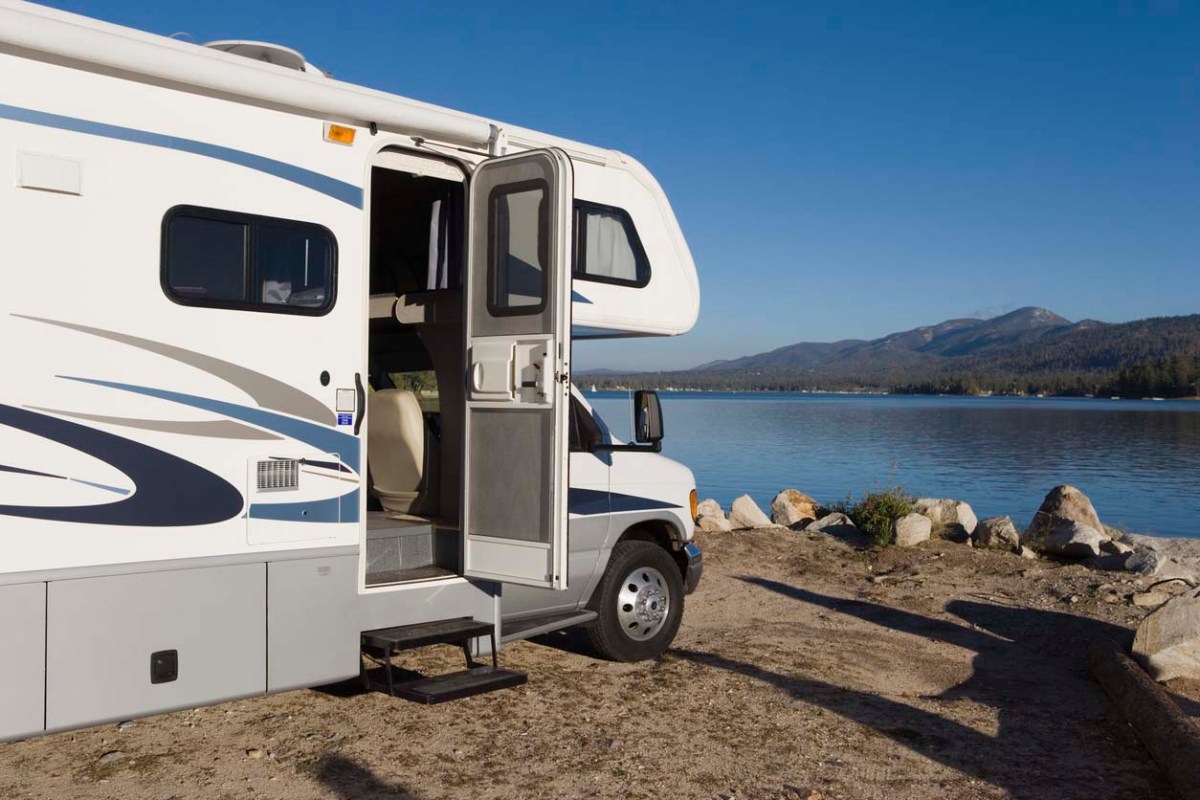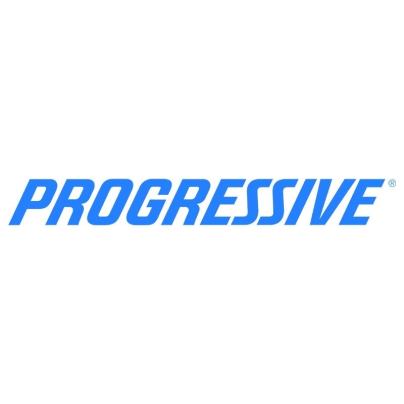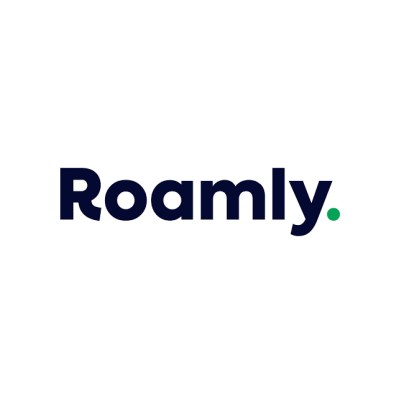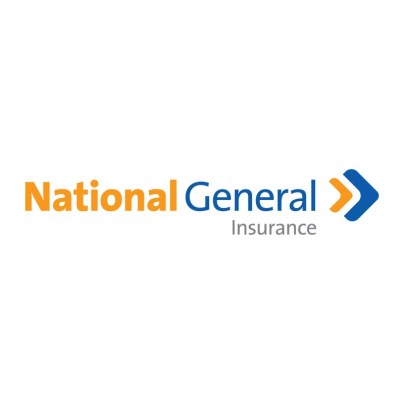
We may earn revenue from the products available on this page and participate in affiliate programs. Learn More ›
Recreational vehicles are a popular purchase, and for good reason. Whether an RV owner is traveling alone or with the family, an RV offers flexibility and freedom on the open road or to a campsite. With the increasing amount of interest in owning an RV, and some folks even opting to live in their RVs on a full-time basis, there is also a need to protect this extended living space.
Owning an RV is a big investment, and careful consideration should be given to protect it, just as someone would their home or auto. Regardless of whether an RVs a few thousand dollars or hundreds of thousands of dollars, an RV insurance policy can provide peace of mind and additional financial resources in the event an RV is stolen or sustains damage during a covered event. We’ve compared multiple providers to find the best RV insurance company and what to look for when choosing a policy.
- BEST OVERALL: Progressive
- RUNNER-UP: Roamly
- BEST DEDUCTIBLE OPTIONS: National General Insurance
- BEST DISCOUNTS: GEICO
- ALSO CONSIDER: Auto-Owners Insurance

What to Consider When Choosing One of the Best RV Insurance Companies
There are numerous points of consideration when choosing the best RV insurance companies, including the availability of coverage through each company’s service area, coverage options—such as standard policy terms, extra endorsements, and add-ons—and coverage limits included with RV insurance. Cost factors are important considerations as well, so it may be worthwhile to evaluate premiums, discounts, deductibles, and other factors that could impact the overall cost of RV insurance. RV owners may also want to weigh factors impacting the customer experience, such as the quote process, what’s involved in filing a claim, and how customer service inquiries are handled.
Service Area
Not all insurance providers offer RV coverage, and if a provider does offer it, it may not be offered in every state. Before digging into coverage options and other details, RV owners may want to first check that each company they’re considering offers this type of insurance in their area. Another aspect of RV coverage and service area to consider is the type of RV insurance, since RVs fall into a few different categories based on their function. The main RV classes are:
- Class A: These are the largest of the motorhomes, usually spanning 20 to 25 feet, and are often built on a bus chassis.
- Class B: Typically referred to as camper vans or sleeper vans, these are smaller than Class A vehicles and are built on a vehicle chassis, yet they often have amenities such as small kitchens and sleeping quarters.
- Class C: Built on a truck chassis, these units are smaller compared with other RVs and do not typically include all the amenities of a Class A motorhome.
- Towables or trailers: Travel trailers require towing from another vehicle and are often used to haul items. Meanwhile, a towable RV (sometimes referred to as a fifth-wheel camper) offers the capacity of a full-size camper van but needs to be towed by another vehicle, often a pickup truck.
Before selecting a company, it’s important to confirm the provider offers coverage in the RV owner’s area and for the type of motorhome or travel trailer purchased.
Coverage Options
The coverage options are an essential component of an RV insurance policy because they detail what the provider will cover should the worst-case scenario occur with the RV. It also has a significant impact on the cost of the policy.
Most policies include the following coverage options, which are quite similar to auto insurance coverage:
- Bodily injury liability: Provides coverage for third-party injuries if the RV driver is at fault.
- Property damage liability: Covers damage to property or other vehicles if the RV driver is at fault.
- Collision: Pays to repair damage to the policyholder’s RV due to an accident, regardless of fault.
- Comprehensive: Covers damage to the RV if it’s caused by a covered event separate from a traffic accident, such as vandalism or storm damage, or the theft of the vehicle.
- Uninsured motorist: Provides coverage when the RV is damaged or the RV driver or a passenger is injured due to an accident, and the at-fault party does not have insurance (or sufficient insurance) to cover the damages.
- Medical payments: Pays for the medical bills of the driver and any passengers if the RV is involved in an accident, regardless of fault.
Another popular endorsement available as an optional add-on includes roadside assistance and towing and labor, which can provide assistance if the RV breaks down, experiences a flat tire, needs to be towed, or even if the driver locks the keys inside. Vacation liability coverage is another worthwhile option, which offers liability coverage if someone is injured near or inside the RV while it is parked at a campsite or at another location away from the owner’s primary residence. Full replacement cost coverage pays to replace the RV and any personal property inside if a covered loss occurs and doesn’t deduct for depreciation. This coverage also extends to any RV accessories or personal property, whether it’s one of the best RV mattresses or one of the best sewer hoses. Travel trailer insurance may also be available for non-motorized tow-behind homes, and it can provide coverage for damage to the trailer and its contents.
Full-Timer Vs. Part-Timer Coverage
Another consideration for RV insurance is whether the owner needs full-time or part-time coverage. Full-time coverage is designed for those who live in the RV on a regular or full-time basis. This coverage needs to include enough personal property coverage for all of their belongings in the event of theft or extensive damage. A full-timer may also consider adding emergency expense or loss of use coverage, which provides some reimbursement if alternate living arrangements are needed (including hotel and food expenses) while the RV is being repaired or replaced.
An RV owner who uses the vehicle on a part-time basis, such as for camping or taking occasional road trips, may not need the same type of robust coverage as a full-timer. For instance, part-timer coverage may have lower coverage limits than a full-timer RV insurance policy, which would likely result in lower insurance rates.
Coverage Amount
The coverage amount, or limit, is the maximum amount of coverage the RV insurance policy offers in the event of theft or damage to the RV. One of the most important aspects of a policy is whether the coverage is substantial enough so the RV owner doesn’t have to pay out of pocket in the event of a theft or a covered loss.
For example, personal property coverage is a category that requires the RV owner to carefully consider how much coverage they need to choose. A part-timer may not keep as many valuable possessions in their RV, but someone who uses their RV on a full-time basis may have significantly more valuables (and more personal property in general) kept in the RV, so they could benefit from a higher limit on personal property coverage.
Quote Process
The RV insurance quote process is another factor worth taking into consideration when purchasing a policy because it provides a glimpse of future customer service and a more realistic view of how much premiums might cost. In addition, a streamlined quote process can make it easier for RV owners to compare rates and shop around for the best deal on an insurance policy.
Premiums are the fees the policyholder is responsible for to keep the policy active and are typically paid monthly, quarterly, or annually. Gathering multiple quotes from several providers can provide a more accurate picture of RV insurance cost across different companies, as well as which policy can offer the most value. This can help narrow down which insurance company might be a better choice to work with as an RV owner.
Keep in mind that different companies offer different methods for their quote process, such as online, through the customer service number, or directly with an agent. Although some RV owners may prefer to obtain a quote completely online, others may want to work directly with an agent to get the most accurate quote possible. Choosing the right quote process comes down to each RV owner’s preferences and needs.
Claims Process
Like the quote process, the claims process may be unique to each company, and a policyholder may have a preferred method of communication when it’s time to make a claim. Some providers may allow policyholders to submit claim documents through an app or online, while others require all documents to go to a local agent. Some policyholders may choose to work with an agent so all their questions are answered along the way, while others may feel comfortable submitting all the paperwork and supporting documentation online. RV owners may also want to consider response times when a claim is filed to get a better sense of how long it can take to have a claim reviewed, approved, and paid out.
Discounts
Discounts are a fantastic way to obtain more affordable RV insurance premiums and lower the overall cost of the policy. RV insurance costs vary greatly depending on a wide variety of factors, but many insurance providers offer numerous discounts which can help RV owners lower their premiums.
Part of the quote process may include reviewing the discounts each provider offers, since it can have such a large impact on the total cost of a policy. Common discounts policyholders might find with RV insurance companies include:
- Multi-policy, if the owner has another policy through the same insurance provider, such as home or auto.
- Multi-vehicle, if the owner has more than one vehicle insured through the same insurance company.
- Quote in advance, if a quote is obtained prior to the effective date of the policy.
- Original owner, if no one else has ever owned the motorhome or RV.
- Paid in full, if the premiums are paid in advance, typically 6 months or a year up front, depending on the policy.
- Paperless statements, if the policy statements are delivered to the policyholder electronically.
- Small-accident forgiveness, which means the policyholder’s premiums won’t increase if the accident claim is under a certain dollar amount.
- Large-accident forgiveness, which means a large accident won’t result in raised premiums either, but typically only if the policyholder has had a policy with the company for several years.
- Storage discount, if the RV is securely stored for long periods of time when not in use and depending on where the vehicle is stored.
Deductibles
A deductible is the out-of-pocket amount the policyholder is responsible for when a claim is made, which is deducted from the payout. For example, if an RV owner files a claim for $3,000 worth of damage and has a $1,000 deductible, they will receive a payment of $2,000 from their insurance company.
Agreeing to carry a higher deductible can lower the cost of insurance premiums as opposed to a lower deductible, which often results in increased insurance rates. While choosing a higher deductible may be tempting to save on the up-front cost of insurance premiums, policyholders will receive a smaller payout on any claim they file after accounting for that higher deductible.
AM Best Rating
The AM Best rating of an insurance provider is a useful reference tool for anyone who wants a better understanding of a company’s financial stability. AM Best is a third-party credit agency that reviews an insurance company’s creditworthiness and financial strength based on a number of key financial metrics. AM Best uses a rating system of letters between A++, which is considered Superior, to D, which is considered Poor, for each insurance provider. The ratings are a quick way to get a snapshot of a company’s financial standing, long-term outlook, and ability to pay out claims as promised.
Our Top Picks
RV owners looking for the best RV insurance companies will likely want to compare the features, benefits, advantages, and disadvantages they consider to be the most valuable to them. Whether weighing cost, coverage options, or the claims process, comparing multiple companies side by side can help RV owners in the decision-making process. The following companies offer many advantages to RV owners and can be a great place to start their research.
Best Overall
Progressive
- Service area: 50 states and Washington, D.C.
- Quote process: Online, phone, agent
- Claims process: App, online, phone, agent
- Deductibles: $250 to $5,000
- AM Best rating: A+
Pros
- Nationwide availability
- High $500,000 vacation liability coverage available
- Relatively low insurance premiums
- Diminishing deductible option available
- Combined single-limit option available
Cons
- Total-loss replacement coverage not available for all types of RVs
Why It Made the Cut: Progressive is available nationwide and in Washington, D.C., plus it offers up to $500,000 in vacation liability coverage along with potentially low insurance rates. Progressive offers RV coverage in all 50 states, plus Washington, D.C., which is not always the case with this type of insurance. RV owners may also appreciate the overall lower insurance premiums Progressive tends to offer and the multiple discounts available. The diminishing deductible option is available with RV coverage, too, which gives policyholders the chance to reduce their deductible based on claims-free driving for further savings. Although Progressive does not offer total-loss replacement coverage for all types of RVs, RV owners have plenty of chances to customize their policy to their exact needs. Options such as vacation liability coverage up to $500,000 and combined single limit liability coverage (where the policyholder has a maximum dollar amount for both bodily injury and property damage liability, instead of separate coverage amounts) are a couple of examples of policy customization offered by Progressive. Specs
Runner-Up
Roamly
- Service area: 49 states and Washington, D.C.
- Quote process: Online, phone
- Claims process: Online, phone
- Deductibles: $250 to $1,000
- AM Best rating: Not rated
Pros
- Specialty in RV insurance
- High $300,000 property damage liability coverage available
- Efficient quote process via user-friendly online tool
- RV coverage available in Canada via Outdoorsy partnership
Cons
- Not currently rated by AM Best
Why It Made the Cut: Roamly specializes in RV insurance, which can give RV owners access to more RV experts, and it offers high property damage liability coverage limits if needed. Roamly is another top consideration for this type of coverage because it’s one of the few insurance providers specializing in RV insurance. Since many of the employees at Roamly are not only helpful with insurance policies but are also RV owners themselves, they may be in a better position to provide insightful advice on RV insurance and how to handle claims. Although Roamly is not currently rated by AM Best, the employees may be able to offer a unique perspective on an RV owner’s policy since they are closely tied to the RV industry. RV owners can easily gain a better idea of coverage options and premium costs thanks to the company’s user-friendly online quote process. One coverage option that may appeal to RV owners is Roamly’s high $300,000 property damage liability coverage, which is available as a policy add-on. A higher property damage liability limit could help RV owners in the event that they cause an accident and are liable for extensive property damage, such as totaling another expensive RV or multiple vehicles. Coverage is currently offered in 49 states and Washington, D.C., and is also available in Canada through a partnership with Outdoorsy, an RV rental service provider. This option may be useful to RV owners who plan to split time between the U.S. and Canada with their motorhome. Specs
Best Deductible Options
National General Insurance
- Service area: 41 states
- Quote process: Online, phone, agent
- Claims process: Online, phone, agent
- Deductibles: $0 to $5,000
- AM Best rating: A+
Pros
- High $500,000 bodily injury liability coverage available
- $0 deductible option available
- Diminishing deductible option available
- Optional coverage extension for RVs traveling in Mexico within 50 miles of the border
- 24-hour claim support over the phone
Cons
- Relatively high insurance premiums
Why It Made the Cut: National General Insurance offers more flexibility with deductibles, starting at a $0 option, which may be a better fit for some RV owners. National General Insurance provides greater flexibility with the deductible options it offers. Policyholders can choose a deductible anywhere from $0 to $5,000, depending on how they want to balance their up-front costs with potential claim payouts down the road. Plus, policyholders can lower their deductible with each year of claims-free driving, thanks to the company’s diminishing deductible option. Although National General’s premiums may be relatively high in some cases, depending on the coverage terms selected and the policyholder’s risk profile, it does offer several advantageous endorsements. For instance, RV owners can purchase an add-on that extends their coverage so their RV is still insured if they travel in Mexico within 50 miles of the border. Another option policyholders may find beneficial includes a high $500,000 bodily injury liability coverage limit in the event they are found at fault for injuries to a third party as a result of an accident. For anyone who prefers the human touch, the company also offers 24-hour claim support over the phone. Specs
Best Discounts
GEICO
- Service area: 46 states and Washington, D.C.
- Quote process: Phone, agent
- Claims process: App, online, phone, agent
- Deductibles: Unknown
- AM Best rating: A++
Pros
- High $100,000 personal property coverage available
- Numerous membership and employee discounts available
- A++ AM Best rating
Cons
- Unknown deductible options
Why It Made the Cut: GEICO offers high personal property coverage options along with an expansive list of discounts that can help policyholders save even more on their premiums. GEICO is well known for its home and auto insurance policies, but it also offers RV coverage in 46 states and Washington, D.C. The company holds an impressive A++ financial rating from AM Best, which is the highest grade an insurance company can be given by the credit-rating agency. Such a high rating indicates that GEICO has a superior ability to meet its obligations as an insurance company, including paying out claims to its customers. RV owners may welcome the ample claim-filing options available to them, including through the company’s dedicated app, online through GEICO’s website, via the phone, or directly with an agent, which may be useful while traveling on the road or at campsite. Although the deductible options GEICO offers are unknown, there is a long list of discounts available to policyholders, including plenty of membership and employee discounts for further savings. GEICO offers discounted rates on RV insurance to members and employees of more than 800 organizations and businesses, ranging from alumni associations and sororities to insurance companies and state bar associations. The high $100,000 personal property coverage available is one example of the range of policy customization choices available from GEICO; this could be useful for RV owners who keep a wide variety of personal belongings in their vehicle. Specs
Also Consider
Auto-Owners Insurance
- Service area: 26 states
- Quote process: Agent
- Claims process: Agent
- Deductibles: Unknown
- AM Best rating: A++
Pros
- Safety-feature device installation discount available
- 24-hour roadside assistance in the U.S. and Canada
- A++ AM Best rating
Cons
- Small service area covering 26 states
- No phone or online quote or claim options
- Unknown deductible options
Why It Made the Cut: Auto-Owners Insurance offers 24-hour roadside assistance throughout the U.S. and Canada, which can give policyholders added peace of mind while out on the road. Auto-Owners is a Michigan-based insurance company offering RV insurance in 26 states currently. Although this is a relatively small footprint, Auto-Owners offers multiple standout features that make it worth considering for eligible RV owners. For instance, holds an A++ rating from AM Best—the highest rating available—indicating superior creditworthiness and a strong long-term financial outlook. Also worth noting is the 24-hour roadside assistance Auto-Owners offers to its customers while they’re traveling in both the U.S. and Canada, which can be especially helpful in the event their RV breaks down far from home. Although Auto-Owners only uses agents for its quote and claims process, that may appeal to RV owners who prefer working with someone in person so they can ask questions and receive more hands-on support. The deductible options Auto-Owners offers are unknown, but the available discounts are plentiful. For example, the provider offers a safety-feature device discount if the RV has certain safety features installed, such as antilock brakes or airbags, among other discounts that can help policyholders save money on their RV insurance. Specs
Our Verdict
We chose Progressive as the Best Overall pick due to the company’s nationwide footprint with RV insurance, high vacation liability coverage limits, low insurance premiums, and the options to select a diminishing deductible and combined single limit for liability on RV insurance. Roamly is our Runner-Up choice because it specializes in RV insurance, offers high limits on property damage liability coverage, provides an easy-to-use online quote tool, and can help customers get coverage in Canada through its exclusive partnership with Outdoorsy.
How We Chose the Best RV Insurance Companies
Multiple insurance providers were reviewed in order for us to provide a curated list of the best RV insurance companies based on the most important factors a policyholder might consider. We reviewed each company’s service area, standard RV insurance covearge options, plus any add-ons that can be purchased to enhance a policy. AM Best financial ratings were also evaluated as an indicator of the financial strength of each insurance provider.
Additionally, cost was a consideration too, including what discounts may be available to RV owners, the average premiums they might expect to pay on a policy, and potential deductible options, among other factors impacting the overall cost. Our research also examined the quote process and claims process, as well as customer support services, since these are a critical part of the overall customer experience and may be important when selecting the right provider.
Before You Choose One of the Best RV Insurance Companies
Before an RV owner selects the best insurance company for their needs, it’s important to keep in mind that coverage requirements may vary depending on where the RV owner is located, as different states may set their own baseline liability requirements in order for an RV to legally drive on a roadways. Regardless of what those minimum requirements look like, a policy can provide substantial value and peace of mind for RV owners. The right policy can help owners recoup their losses if their possessions kept inside the RV are damaged or stolen or if they need to repair or replace the RV due to damage or theft. RV owners may want to take an inventory of every item or accessory stored in their RV when determining how much coverage they need.
The insurance providers included in this roundup may not be suitable for all RV owners in all scenarios, depending on what features or coverage terms they require. It can be worthwhile for RV owners to carefully review all available options and select the company based on their own driving needs and budget, which is also another reason comparing multiple providers is essential to finding the best fit.
Cost of Opting for One of the Best RV Insurance Companies
Whether a shopper is looking for top-rated travel trailer insurance or coverage for an expensive motorhome, they’re likely wondering how much one of these policies may cost. RV insurance cost is influenced by a variety of factors, including the coverage options and add-ons selected, the policyholder’s location, and how often the RV is used. The type of motorhome or trailer the vehicle owner wants to insure also plays a part. Other cost considerations include the deductible that’s attached to a policy and what discounts are applied to help lower the cost of coverage. Just as the best home and auto bundles can save homeowners money on their insurance, bundling RV and other insurance policies could help RV owners reduce the cost of coverage.
The average cost for RV insurance may not accurately reflect the specific coverage options an RV owner is looking for, so the best way to figure out the cost of a comprehensive RV insurance policy may be to obtain quotes from several of the best RV insurance companies and compare them side by side. This will help determine which policy and company not only offers the precise coverage needed for a particular RV or trailer, but also what works for an individual’s budget.
The Advantages of Opting for One of the Best RV Insurance Companies
RV insurance can be a valuable financial tool, especially for any owner who is concerned about paying for the damage they could possibly cause to others or their property while out on the road. It can also offer peace of mind to the RV owner to know their RV is covered in the event of an accident or other types of damage that can occur, and for damage or loss to any personal property kept in the RV. RV insurance plans can be customized to fit an RV owner’s unique needs with such available add-ons as vacation liability coverage or towing coverage. Other benefits include:
- High limits for different types of RV insurance coverage, including vacation liability, property damage liability, and personal property coverage, to prevent RV owners from having to pay out of pocket for covered losses or damages.
- Customizable policy options, including diminishing deductibles, combined single limits, and limited coverage within Mexico, that can help expand the scope of RV insurance.
- Generous discounts for safety features, memberships, and for employees of certain businesses to help lower the cost of RV insurance.
FAQs
Shopping for RV insurance can get a little complicated, especially since liability coverage requirements may vary depending on the location. Some of the most common questions regarding RV coverage are addressed below so RV owners can better understand their policy options to find the best fit for their circumstances.
Q. Do I need insurance for a trailer?
Since a trailer is not motorized, it may not need a separate policy. It is typically covered under the liability policy of the vehicle towing the trailer. However, a separate policy may be a good idea to cover the trailer itself and any items it’s hauling.
Q. What time of the year is best to buy RV insurance?
There may not be a specific time of year that’s better to purchase RV insurance, as rates don’t necessarily fluctuate from one month or season to another. Instead, it’s best to purchase a policy as soon as the RV is purchased so there is financial protection right away in case of an accident or theft. In addition, buyers who finance their purchase will be required to obtain RV insurance before they can drive their vehicle off the lot, so they may want to have an insurance provider in mind before going down to the dealership.
Q. How do I save money on RV insurance?
Saving on camper insurance or RV insurance is possible through the use of discounts with the provider, gathering multiple quotes to compare the price of premiums, paying premiums in advance and on time, and taking on a larger deductible.
Q. What does RV insurance cover in most cases?
A “full-coverage” RV insurance policy includes liability, comprehensive, collision, uninsured motorist, and medical payments coverage, band may include roadside assistance as well.
Q. Can I buy additional RV insurance coverage?
Yes, most providers allow a policyholder to make changes to their policy even if it’s outside the renewal date. Policyholders can also purchase higher limits on different types of coverage up to the company’s maximum coverage amount.
Q. Is RV insurance required by law?
RV owners will likely need to obtain liability coverage if they plan to drive their vehicle on the road. The laws requiring specific amounts of RV insurance vary state by state, although state-minimum levels are usually quite low and may not be sufficient to cover damage an RV causes to others or their property.
Q. What types of vehicles are typically covered by RV insurance?
One thing no one tells you about owning an RV is that the size of the vehicle can have a huge impact on the owner’s experience, and that includes getting insurance coverage. Insurance providers usually put RVs into one of two categories: motorhomes (Class A, B, or C), which are motorized, or trailers and towables, which require towing. The coverage offered for each type of RV varies depending on the provider, and the total RV insurance or camper insurance cost may depend on what class of vehicle an RV fits.







